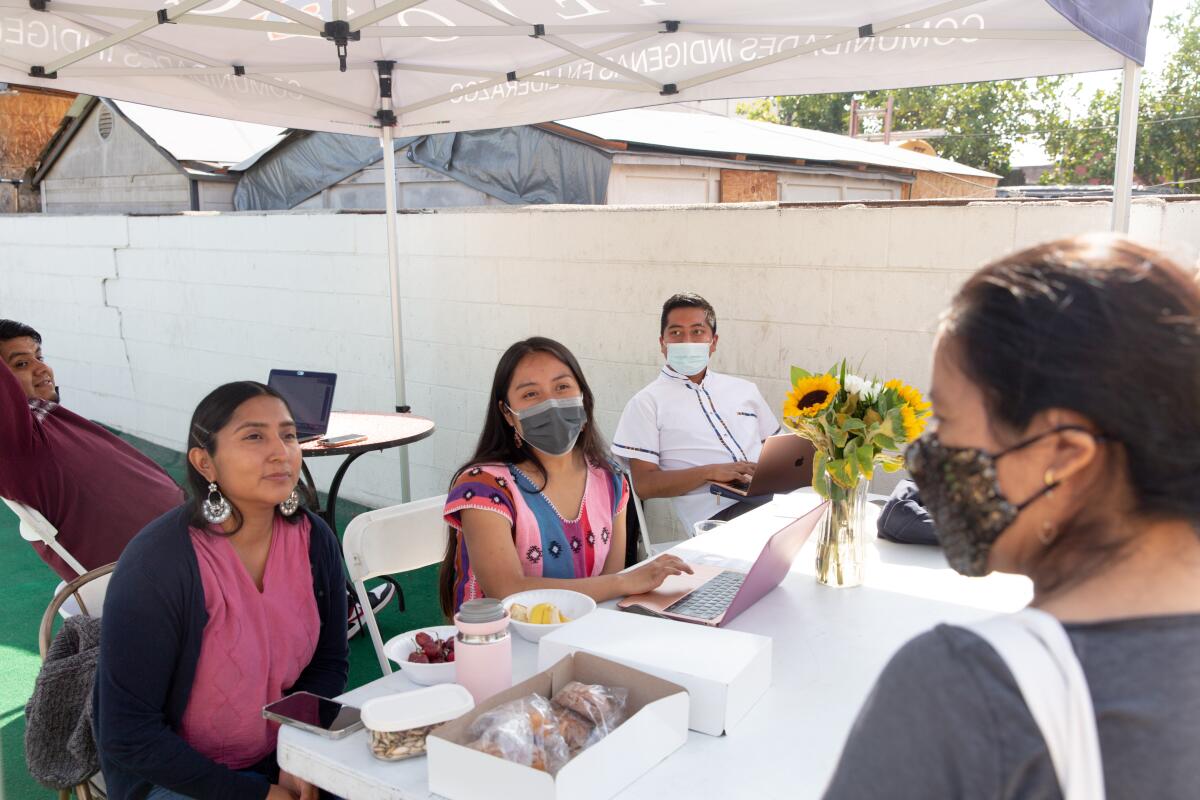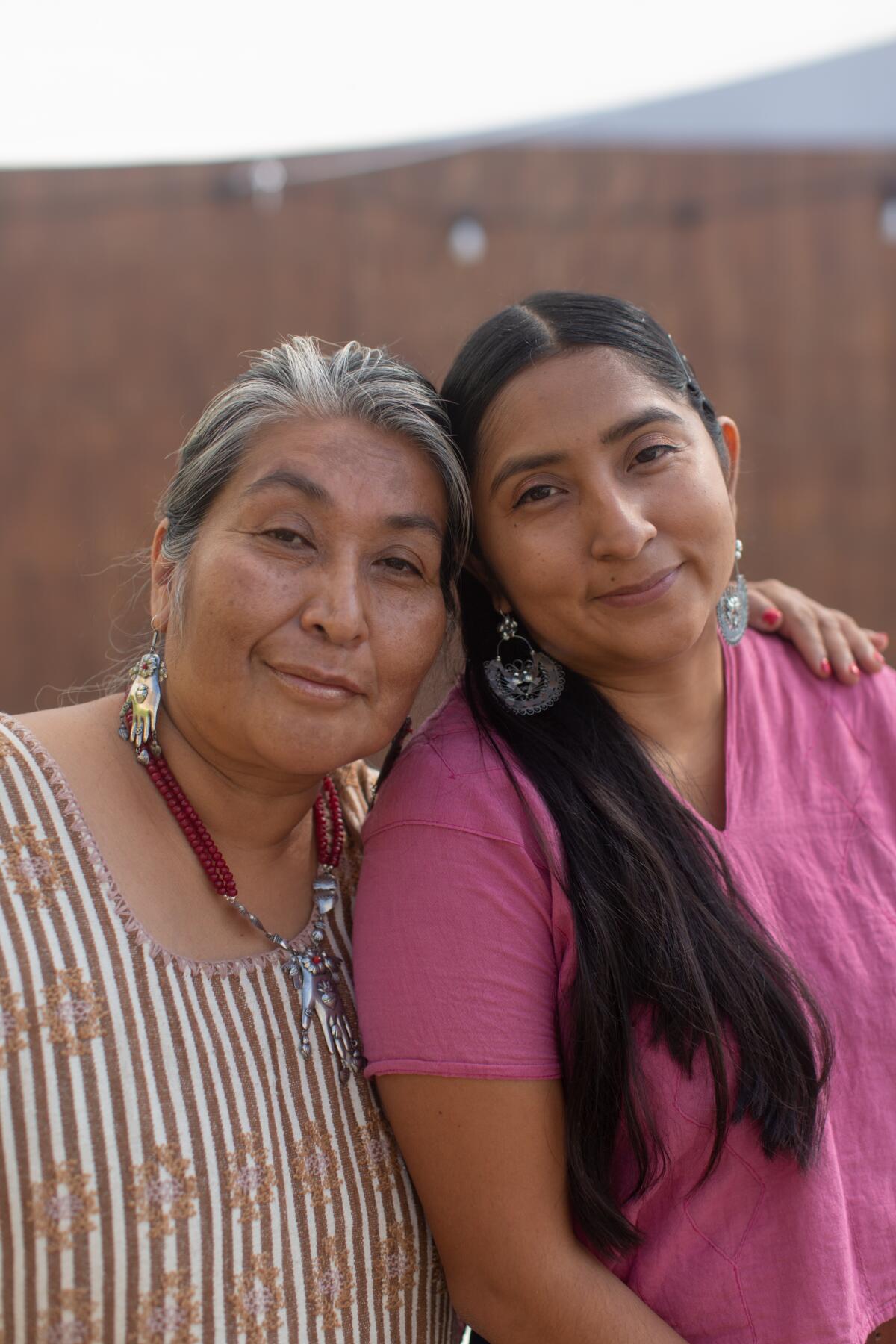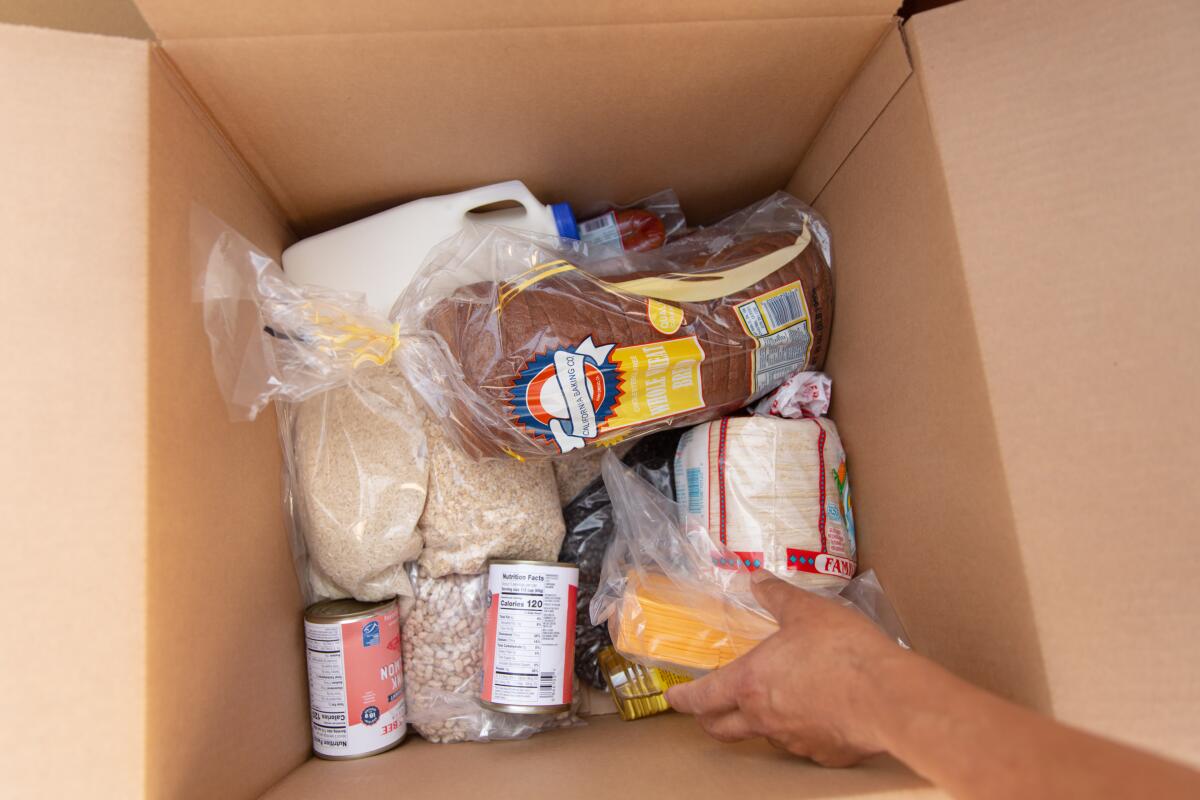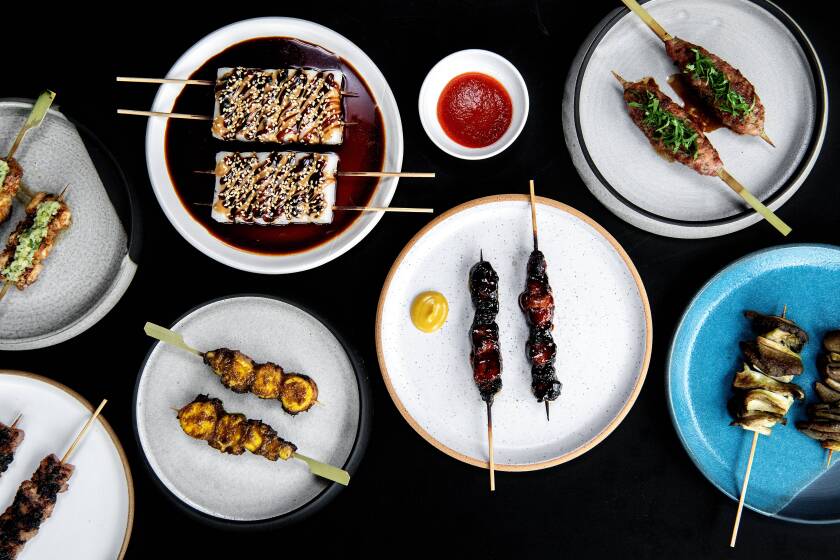Helping Indigenous restaurant workers in the languages they speak

- Share via
Gustavo Molina, an undocumented, longtime cook in the Beverly Hills area, was at home in March 2020 when he got a call letting him know that he would no longer be needed at work due to the pandemic shutdown.
“Initially, the other cooks and I thought it was going to last one to two weeks — or one month, at the most. But later, we found out that the restaurant was going to close completely,” says Molina.
For nine months, he worked just two days a week as a gardener while leaning on his savings to cover his expenses. In December, Molina, who is Zapotec, joined the kitchen of another establishment, but he is working fewer hours than before COVID upended his world.
The pandemic has laid bare the inequities that have long been baked into the food and restaurant industries. Though “essential workers” in the food industry constitute one-fifth of all employees who were cleared to work, second only to healthcare workers, political infrastructures provided few protections for them. And though it might seem that restaurants have returned to a new normal, restaurant workers, especially those who are undocumented with no safety net, still face unemployment and decreased hours.
South L.A.-based CIELO, or Comunidades Indigenas en Liderazgo, is a women-led organization advocating for Indigenous people — including restaurant workers — through the languages they speak. Whether the Mixes behind the taco stand, the Triquis and Mixtecos picking our lettuce and tomatoes or the Zapotecs in our city’s restaurant kitchens, CIELO is helping them.

“When the restaurants started reopening, it would often be only half-capacity, hiring for only half hours. Others closed because they were unable to sustain themselves,” says Odilia Romero, co-founder and executive director of CIELO. “So [laid-off workers] have accrued debts from rent, car payments and more over a whole year from losing their jobs and not having income for months.”
In Los Angeles, as many as 40% of all restaurant employees are undocumented. Many of these migrant workers are Indigenous, primarily speaking an Indigenous language local to their village in Mexico or Guatemala. (Zapotecs in particular have a long history in the Los Angeles restaurant world.) Sometimes such workers are not fluent in Spanish, presenting barriers to communication with their co-workers and superiors as well as the ability to advocate for their rights.
“There’s an assumption that we’re all Latinx, and people don’t take into account the diversity of our languages,” says Romero, who is Zapotec and interprets.
In the “before” times, her group was most active in dispatching Indigenous language interpreters to hospitals, police stations, courthouses and the border so that members of the Indigenous communities could get services and representation. Since the pandemic started, however, CIELO has expanded, evolving into a resource for not only pandemic-related but basic needs, like cash assistance, food and other supplies.
Workers are acutely vulnerable to exploitation. Often in back-of-house positions, undocumented restaurant workers experience wage theft or nefarious fraud schemes.
Molina was the victim of one. Using a caller ID made to look like LAPD’s Rampart Division, criminals impersonating an authority threatened to “charge” him with a crime unless he made payments, ultimately extracting $1,800 from him.
“Odilia connected me with the captain of the Rampart police station, and I told him the whole story. He told me that it was a scam and helped me file a report,” Molina says.
These scams among the community can fuel distrust, making it hard to know who to accept help from, but established relationships have been instrumental in connecting undocumented Indigenous workers to the right resources, including monetary aid.
We hope our guide will lead you to some delicious meals.
Through CIELO’S grant-funded Undocu-Indigenous Fund, cash payments of $500 — frequently used to help pay rent — have been provided directly to households. Forty-four percent of those who have received aid from the organization are food and restaurant workers, says Janet Martinez, director of programs for CIELO, and Romero’s daughter.
“A restaurant worker approached us [early on] and asked if we were going to do anything to help, or if we were going to roll anything out. He had co-workers at his restaurant who were also concerned,” Martinez says. “And that’s why we started the Undocu-Indigenous Fund.”
During the pandemic, CIELO has given out more than $2.2 million in cash and $1.8 million in grocery cards, which is helping workers who are dealing with food insecurity.
“People wondered if it was a scam to steal personal information. But once they get the check and they [cash] it, we’ve gotten offers of their own services in the spirit of guelaguetza,” says Martinez, who is referring to the social practice of reciprocal exchange that exists among Indigenous Oaxacans.

In addition, CIELO has provided personal protective equipment and set up weekly clinics for the community to receive COVID vaccinations, aided by interpreters who speak their Indigenous languages. These clinics have doubled as food bank pickup sites, where families can take home a box full of groceries for the week.
Educational resources such as videos detailing safe COVID practices in their languages have been instrumental in helping workers navigate the pandemic. CIELO also helps Indigenous locals submit applications for government services, an experience that is frequently frustrating.
“I helped someone the other day register for the utilities forgiveness program in L.A. County on the computer, and we went through the whole application,” Romero says. “It took us an hour and a half, and then the system crashed.”
With so many food workers in Los Angeles struggling with food and housing, as well as bureaucratic and technological literacy, CIELO’s 13-person staff faces enormous challenges. But, Romero says, it’s important that we recognize everyone integral to the food chain, everyone responsible for putting meals on our tables.
“I guarantee there are one or two, if not a whole kitchen, of Oaxacans in most restaurants in L.A. And if the chefs are listening, somebody is definitely speaking an Indigenous language, whether it’s from Guatemala or from Mexico, but they are there,” Romero says as she packs up supplies at the conclusion of another vaccination drive held under tents behind the CIELO offices.
“The Indigenous peoples have always been putting food on our table.”
Editor’s note: The author’s partner is employed by CIELO as a photographer/videographer.
More to Read
Eat your way across L.A.
Get our weekly Tasting Notes newsletter for reviews, news and more.
You may occasionally receive promotional content from the Los Angeles Times.








